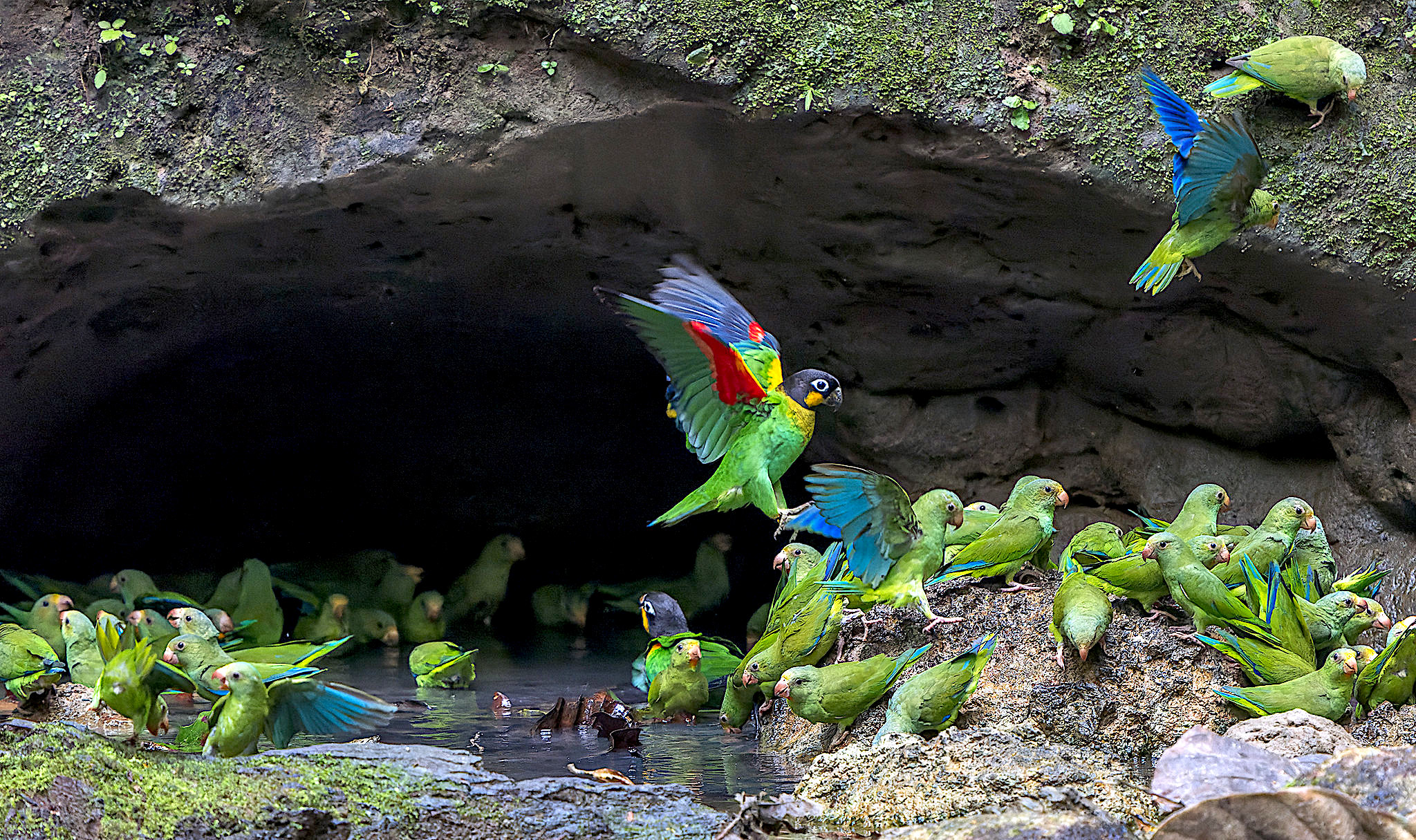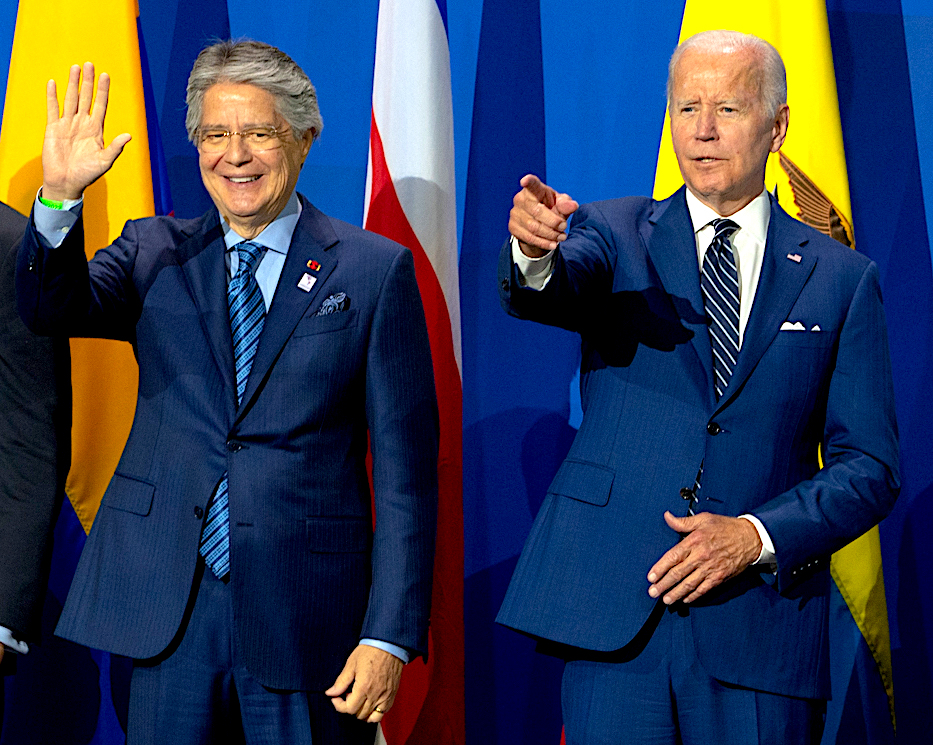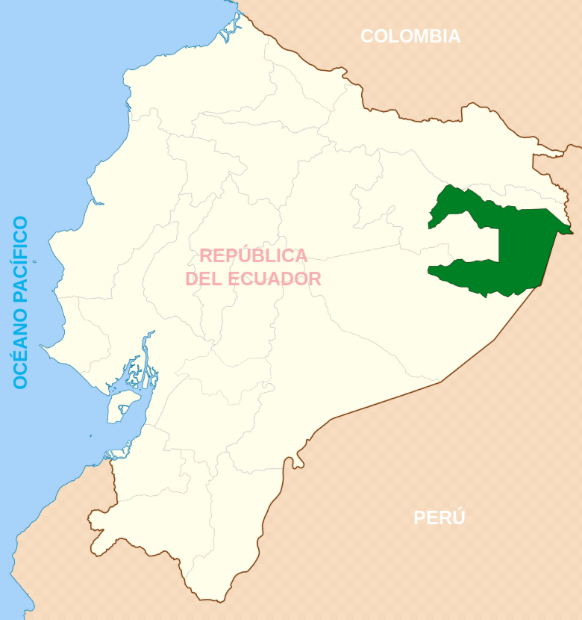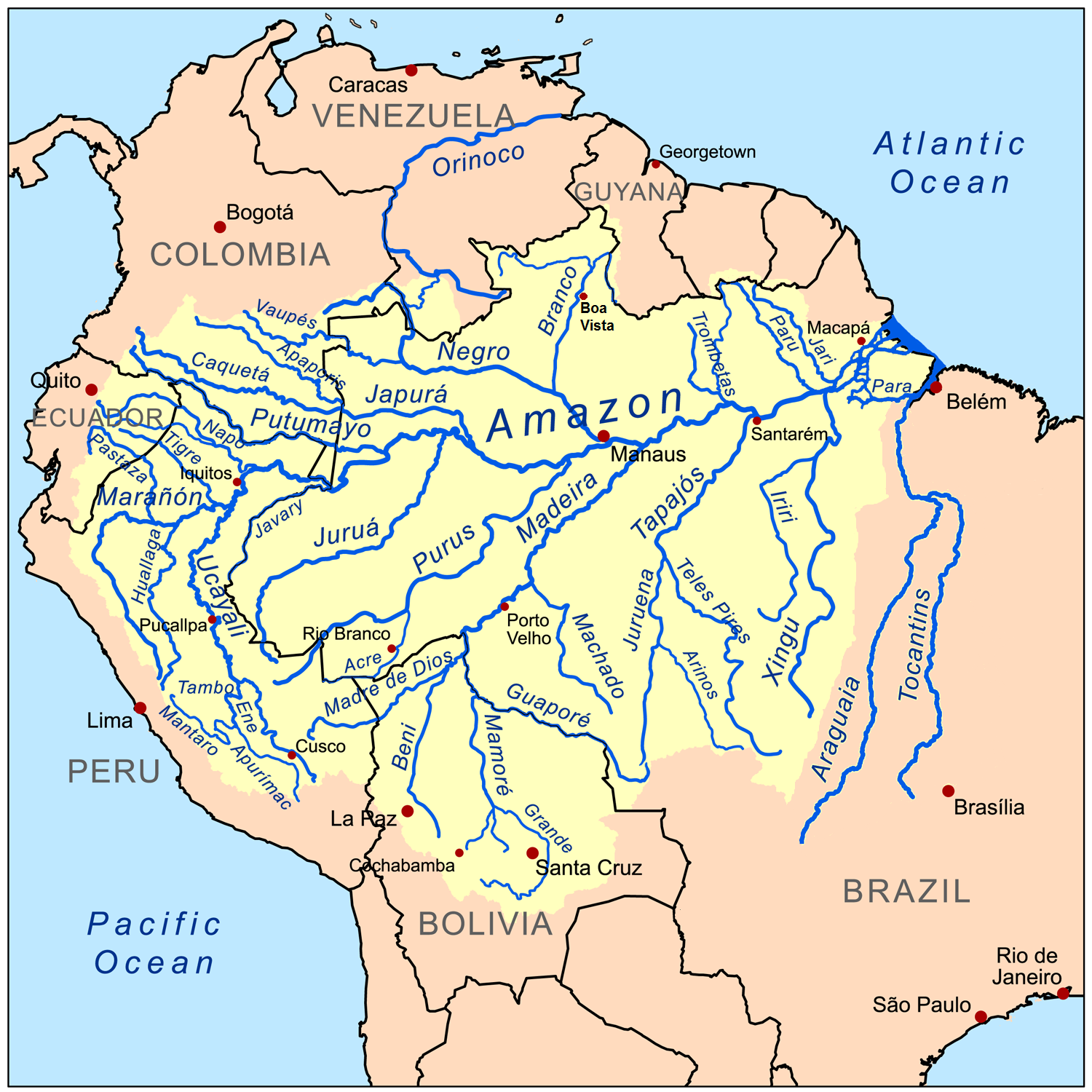The binding referendum stops oil exploration in an area of Yasuní National Park that is rich in biodiversity and home to uncontacted Indigenous tribes.

Orange-cheeked Parrots and (mostly) Cobalt-winged Parakeets at a clay lick in Ecuador’s Yasuni National Park, November 2022. (Doug Greenberg, Flickr, CC BY-NC 2.0)
Ecuadorians voted overwhelmingly on Sunday to reject oil drilling in a section of Yasuní National Park, the most biodiverse area of the imperiled Amazon rainforest.
Nearly 60 percent of Ecuadorian voters backed a binding referendum opposing oil exploration in Block 43 of the national park, which is home to uncontacted Indigenous tribes as well as hundreds of bird species and more than 1,000 tree species.
The Associated Press reported that “the outcome represents a significant blow to Ecuadorian President Guillermo Lasso, who advocated for oil drilling, asserting that its revenues are crucial to the country’s economy. As a result of the vote, state oil company Petroecuador will be required to dismantle its operations in the coming months.”

Ecuador’s Lasso with U.S. President Joe Biden during Summit of the Americas in June 2022 in Los Angeles. (U.S. State Department, Wikimedia Commons, Public domain)
Yasunidos, the civil society group behind the referendum, celebrated the vote as “a historic victory for Ecuador and for the planet.” Drilling operations in Block 43, which began in 2016, currently produce more than 55,000 barrels of oil per day.
Most of Ecuador’s oil is located under the Amazon rainforest, whose role as a critical carbon sink has been badly diminished in recent years due to deforestation and relentless corporate plunder.

Location map of Yasuni National Park in Ecuador. (Sageo, Wikimedia Commons, Public domain)
Sunday’s win was decades in the making. As The New York Times reported ahead of the vote, the referendum is “the culmination of a groundbreaking proposal suggested almost two decades ago when Rafael Correa, who was president of Ecuador at the time, tried to persuade wealthy nations to pay his country to keep the same oil field in Yasuní untouched. He asked for $3.6 billion, or half of the estimated value of the oil reserves.”
“Mr. Correa spent six years in a campaign to advance the proposal but never managed to persuade wealthy nations to pay,” the Times noted. “Many young Ecuadoreans, though, were persuaded. When Mr. Correa announced that the proposal had failed and that drilling would begin, many started protesting.”

Amazon River Basin; the southern Guianas, not marked on this map, are a part of the basin. (Kmusser, Wikimedia Commons, CC BY-SA 3.0)
Yasunidos ultimately collected around 757,000 signatures for the proposed ban on oil exploration in Yasuní — nearly 200,000 more than required to bring a referendum to a vote in Ecuador.
“The uncontacted Tagaeri, Dugakaeri and Taromenane have for years seen their lands invaded, firstly by evangelical missionaries, then by oil companies,” said Sarah Shenker, head of the Survival International’s Uncontacted Tribes campaign, following the vote. “Now, at last, they have some hope of living in peace once more. We hope this prompts greater recognition that all uncontacted peoples must have their territories protected if they’re to survive, and thrive.”
¡Hoy hicimos historia!
Esta consulta, nacida desde la ciudadanía, demuestra el mayor consenso nacional en Ecuador. Es la primera vez que un país decide defender la vida y dejar el petróleo bajo tierra.
¡Es una victoria histórica para Ecuador y para el planeta!#SÍalYasuní pic.twitter.com/RBvHzkozxp
— YASunidos (@Yasunidos) August 21, 2023
Sunday’s vote makes Ecuador the first country to restrict fossil fuel extraction through the citizen referendum process, according to Nemonte Nenquimo, a Waorani leader.
“Yasuní, an area of one million hectares, is one of the most biodiverse places on Earth,” Nenquimo wrote in a recent op-ed for The Guardian. “There are more tree species in a single hectare of Yasuní than across Canada and the United States combined. Yasuní is also the home of the Tagaeri and Taromenane communities: the last two Indigenous peoples living in voluntary isolation in Ecuador.”
“Can you imagine the immense size of one million hectares?” Nenquimo added. “The recent fires in Quebec burned a million hectares of forest. And so, the oil industry hopes to burn Yasuní. It has already begun in fact, with the Ishpingo-Tambococha-Tiputini (ITT) oil project on the eastern edge of the park.”
Ecuadorians’ decision to reject oil drilling in the precious ecosystem drew applause from around the world.
“Historic and wonderful,” responded the climate group Extinction Rebellion Global. “Thank you and congratulations to the people of Ecuador for protecting their people, land, nature, future, and those of the rest of the world, too.
The Fossil Fuel Non-Proliferation Treaty Initiative — a global campaign that works to accelerate the transition to renewable energy — added that “the historic vote sets a remarkable example for other countries in democratizing climate politics.”
Jake Johnson is a staff writer for Common Dreams.
This article is from Common Dreams.
Views expressed in this article and may or may not reflect those of Consortium News.

From today’s Ecuador papers.
“President Guillermo Lasso said Wednesday he will ignore the results of the Yasuní referendum vote and continue oil production in Block 43-ITT for the remainder of his term. In a Wednesday morning news conference, Energy Minister Fernando Santos explained that the president disagrees with the “premise” of the referendum, saying the decision should have been made by voters living in the area near oil production facilities. “The residents of the Yasuní, living closest to the production sites voted to continue operations,” Santos said. “The question should not have been put to a nationwide vote.”
Azuay Province’s five new National Assembly members say they are united in protecting local interests. Santos said the cessation of oil operations and the dismantling of equipment will be left to the next government, which takes office in November.”
OILY corporate greed is killing this planet. Instead of destroying Nature, can we instead figure out how to permanently eliminate oil companies?
I have mixed beliefs regarding the reliability of statistics coming from climate scientists on what portion of global warming is nature during what nature does vs man made. However, I think everyone around the world should celebrate this victory over oil drilling. The vote is especially impressive coming out of a poor country.
Go Ecuador and may you live longer in the climate change happening. May you also know that fires are lit to discourage you. Long live Ecuador!
Good call, people of Ecuador. Hopefully this holds, but be assured the oiligarchs won’t rest so long as there is oil in the ground to be extracted.
Good luck with this ban being respected. Conkco Phillips may have plans for this.